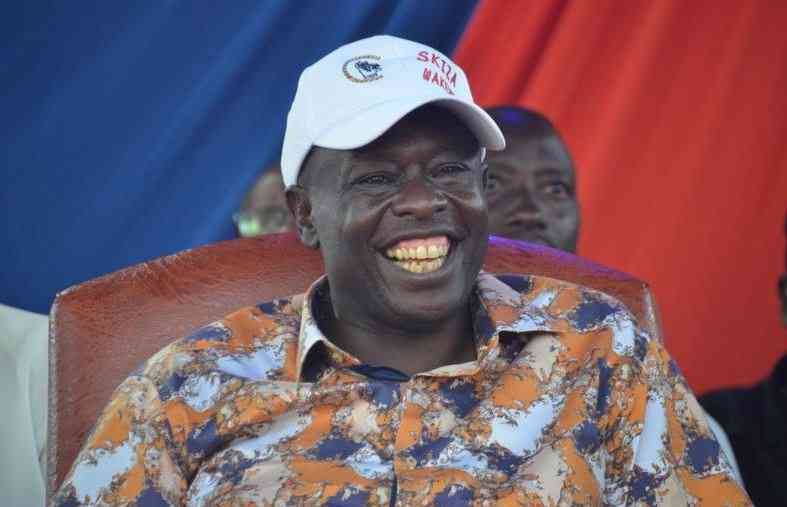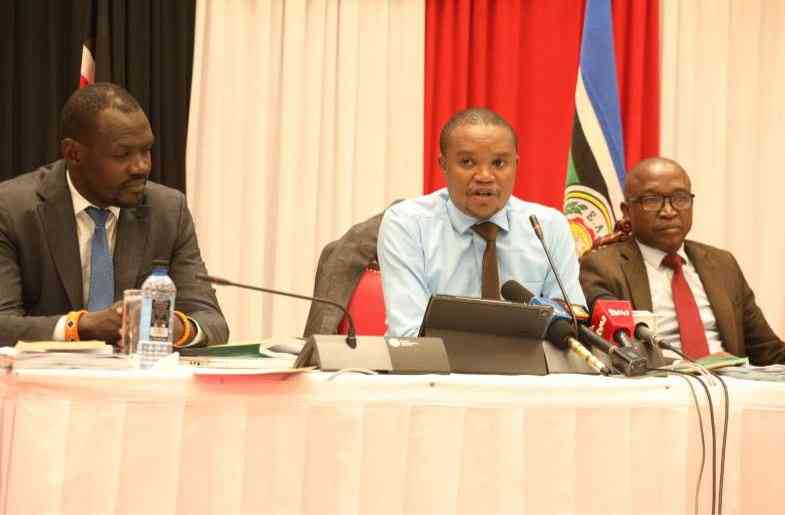Mount Kenya's 'downtrodden desperadoes' looking for a new liberator
Macharia Munene
By
Macharia Munene
| Jun 09, 2025

Peoples of Mount Kenya region are in search of themselves, of their identity within a country that increasingly appears hostile to their presence. Although it is not the first time they have found themselves in such a situation, the intensity of that hostility is relatively new. It leaves them wondering about their future as a people, whether they will remain as a people, and are trying to figure out from whence come their collective tribulations. They appear to be captives in their own land. Imagining themselves as the Hebrews in their tribulations, they admire biblical heroes such as Abraham and even crave for a 'Moses’ to liberate them.
They remember a mythical past and prophets healing and foretelling things. Mugwe in Meru had ability to heal and predict. In Embu, Iregi wa Irungi predicted the invasion by people who looked like butterflies and had sticks that spit fire.
In Murang’a, Chege or Mugo wa Kibiro, a young boy, claimed to have come from God. He warned of the looming danger from people who resembled frogs and butterflies carrying smoking sticks. He advised the building of Thingira wa Iregi at Githunguri Kia Wairera in preparation for independence that would come after the withering of a big 15 feet-wide fig tree (Mugumo) in Thika. In December 1963, Kenya attained independence despite efforts by British colonialists to ensure that the mugumo did not wither and die. It did.
Independence was a consequence of the Mau Mau War in the 1950s against the racist colonial state whose official policy was to isolate the Kikuyu, Embu, and Meru from other Africans. The anti-GEMA (Gikuyu, Embu, Meru, and Akamba Association) conditioning was in schools and government functions, and was so intense that, in post-colonial Kenya, it periodically springs up. The people then try to respond to the reality of being isolated both in mind and in practice.
They desperately look for a muthamaki (leader) to give them direction only to fall into the quagmire of competing leadership aspirants. There never was a shortage of competing ‘leaders’ disparaging each other while preaching ‘unity’. Since each expected the others to follow him, they become prey to manipulation from their tormentors. “We shall beat you now,” so the homeguards told Mau Mau sympathisers, “and beat you more when Uhuru comes.”
READ MORE
MPs dismiss email submissions on Finance Bill 2025 as spam
How Trump's chaos will ripple through Kenyan economy
New proposal to have cars older than 4 years inspected sparks fury
How bead work evolved from being symbolic to fashionable
TransCentury suffers setback in Sh2.2 billion loan row with Equity Bank
Kenya's trade pavilion in Japan attracts record 500,000 visitors
China signals breakthrough in new financial talks with Kenya
Liaison RE leads regional push to embed ESG into reinsurance strategies
Equity woos Italian leather industry investors for local partnerships
The home guard prediction came true in post-colonial times. The sense of despair increased, especially after Jomo Kenyatta, the man they had considered a ‘Moses’, seemed to abandon them in of favour of the ‘home guards’. Critics such Bildad Kaggia, Ngugi wa Thiong’o, JM Kariuki, and even musician Joseph Kamaru raised their voices to no avail.
Kenyatta’s Joshua equivalent, Daniel arap Moi, seemingly intensified the sense of desperation and ended up turning Kenneth Matiba into a multi-party ‘Moses’ because of his daring self-sacrifice. Although Matiba had a way of creating excitement and explaining things, it was his daring that made him attractive and to become 'The One'; leader of downtrodden desperadoes. He became a folk hero.
The country has seemingly returned to pre-multiparty days, full of anxiety and feelings of betrayal. There are scenarios similar to the 1980s in which Kimani Ichung’wa plays Joseph Kamotho in defending the existing system, and Kithure Kindiki plays George Saitoti. There is need, Joseph Kaguthi argues, to revive the uniting and liberation spirit of Githunguri even as people search for a Moses.
Potentials leaders include Governor Irungu Kang’ata, calculative and eager to prove to people, through Murang’a, that he is a performer. The man who shows his card is Rigathi Gachagua, a rich man who fell out with the system that created him. He dwarfs such other aspirants as Ndiritu Muriithi, Jeremiah Kioni, Ndindi Nyoro, Martha Karua, Justin Muturi, Kindiki, Ichung’wa, Peter Munya, and Anne Waiguru. Forceful, exciting, and self-assured, however, he lacks the ability to measure his words to suit occasions and therefore repeatedly fails the maturity test. People are still looking for a new liberator; The One.

